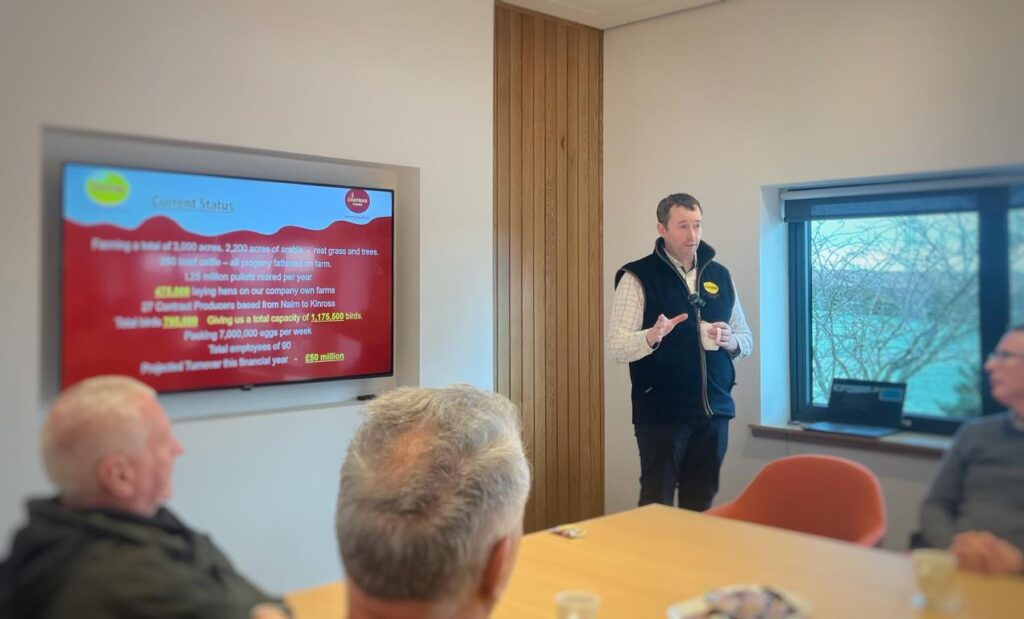Farmlay Eggs, one of Scotland’s biggest egg producers, welcomed members of the Scottish Parliament (MSPs) and councillors to their farm for an open discussion about the current state of Scottish agriculture.
The visit was part of Quality Meat Scotland’s (QMS) ‘Meating Our Potential’ campaign.
The campaign aims to encourage Scotland’s beef farmers to add at least two more cows to their herd each year to help ensure that the supply of beef is enough to meet the ongoing buoyant consumer demand.
Although their primary focus is eggs, Farmlay also run a growing beef operation, which has been recently increased by 20 cows.

Iain Chapman, who is managing director of the family-owned business, said: “Chapman Farm, our arable and beef enterprise, comprises 3,000ac – 2,200ac of arable land with the remainder being grassland, for our cattle, and woodland for the free-range hens to roam.”
Chapman outlined that the family’s beef suckler herd now stands at a total 250 cows, with all progenies being fattened on the farm.
He also described the farm’s “integrated and circular production system”.
“Both the cattle and poultry manure goes back on to the land to provide nitrogen for our grass and arable crops and much of our wheat and barley is used as feed for the hens,” Chapman said.
Egg production
During the visit, attendees were taken on a tour of Farmlay’s factory at Cockmuir Farm, which currently packs seven million eggs every week.
Chapman noted: “We now have 27 contract egg producers stretching from Nairn to Kinross.
“The business has grown an average of 13% year-on-year to meet demand and continues to supply major retailers, including Aldi and Lidl.”
The open discussion also touched on the lack of workforce supply, with one MSP highlighting the challenges Aberdeenshire businesses have with recruitment.
Chapman said Farmlay now employs 90 staff locally, but noted that recruiting for livestock roles has been difficult due to the physical demands and seven-day-a-week cover requirements.
“We’ve been able to fill these difficult-to-recruit positions by bringing in 20 skilled workers from the Philippines, who have integrated well into our team,” he added.
QMS
During the visit, QMS chair Kate Rowell commented on the ‘Meat Our Potential’ campaign and the risks Scotland could face if the national herd doesn’t grow.
“Livestock numbers are falling due to lack of confidence in recent years and fewer people entering the industry – the average age of a Scottish farmer is said to be 60 years-of-age.
“Red meat demand looks set to remain high, but supply could fall, which is when imports fill the gap.”
“In the UK, people are eating more meat – not less – and this is largely because the UK population is increasing and protein is in high demand, so it’s really important that we look at how we can help producers to maintain and increase herd numbers.”

